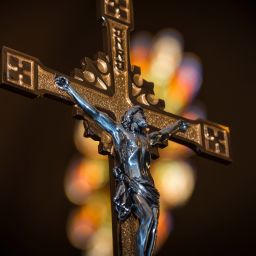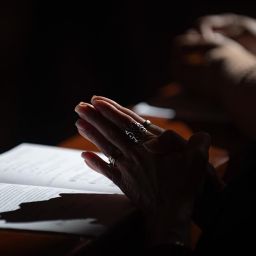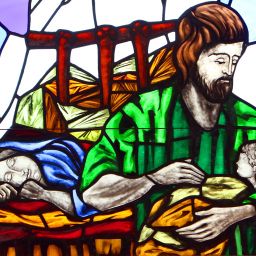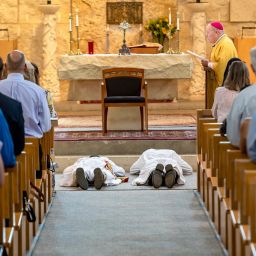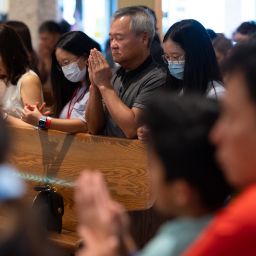
By Father Thomas Esposito, O. Cist.
Special to The Texas Catholic
Spring, according to custom, is a most suitable season for weddings; the abundance of freshly bursting flowers signals that creation rejoices in the beginning of a new life together. The Easter season, overlapping with spring, often features priestly ordinations; the abundance of Alleluia joy reverberates through cathedrals as men are uniquely consecrated for the Lord’s service. Every ordination conveys a jolt of hope to a diocese or religious order. The sight of new priests around their bishop signifies that the Lord continues to channel grace through chosen mediators who link believers today back to the Apostles.
An ordination affords priests an opportunity to ponder the gift and mystery of their priesthood. It invites them to remember the excitement and hope surrounding their first moments as ordained ministers of God espoused to the Church. One of my Cistercian confreres loves to recount the melodramatic words that Bishop Tschoepe whispered as he extended his ordaining hands over him: “This…is…the moment!”
A priest of Jesus Christ needs these annual reminders of his sacramental privilege. The sacrament of Holy Orders makes unique and varied demands on the priest that the Lord does not place on others. The priest must acknowledge that the Eucharistic sacrifice he offers daily is the template for his life, and that the gift he holds in his hands at Mass must be extended in every aspect of his ministry: baptisms, confessions, anointings, weddings, spiritual direction, guiding a community of believers, and teaching. If a priest is to be like Christ in all things, however, he cannot measure “success” (whatever that would actually mean) by merely external indicators. He is fundamentally an aqueduct, a frail earthen vessel chosen by the one Mediator, Christ, to channel the Lord’s merciful love to a parched people. He must drink the thirst-quenching water that he shares with others; he must know and love the Lord in whose name he speaks at the altar.
A priest who no longer prays, who believes only the hype surrounding his supposed greatness, or who ceases to accept and defend the truths of the faith in love, is the pitiful hero of a tragic drama. Bitterness is terribly corrosive if – no, when – his ministry fails to unfold according to his plan. He will inevitably crack at times under the pressure of his duties; the walls of his heart are far too weak, the distractions, wounds and temptations far too fierce and relentless, to serve the Lord with an undivided heart. Discouragement and indifference are ever-lurking threats, especially in those who have outlived their first fervor.
And yet the sacramental gift remains a gift. Every priest stores within his heart unspeakable sadness and massive joy, uncertainty in meeting needs and gratitude for the aid of the Holy Spirit. Every priest knows the peals of deliriously laughing schoolchildren and the anguished silence of a dying woman. Every priest possesses clear oases of consolation and desert dryness in the ordinary routine of prayer. His life is indeed a sacrifice, one that brings joy, hope, courage, and mercy to an unknown multitude in the hundredfold ways promised but never defined by Jesus (see Mark 10:28-31).
No one, to my mind, has summarized this graced adventure as soberly and beautifully as the Dominican priest Henri-Dominique Lacordaire:
To live in the midst of the world without wishing its pleasures;
To be a member of each family, yet belonging to none;
To share all suffering;
To penetrate all secrets;
To heal all wounds;
To go from men to God and offer Him their prayers;
To return from God to men to bring pardon and hope;
To have a heart of fire for charity, and a heart of bronze for chastity;
To teach and to pardon, console and bless always.
My God, what a life;
And it is yours,
O priest of Jesus Christ.
Father Thomas Esposito, O. Cist., is a monk at the Cistercian Abbey of Our Lady of Dallas and teaches in the theology department at the University of Dallas.



